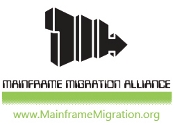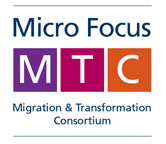Datatek, Inc.
1735 Guess Road, Suite 200
Durham, NC 27701
Email: info@datatek-net.com
Sales: sales@datatek-net.com
Web: webmaster@datatek-net.com
USA & CANADA: 800-536-4835
International: 919-416-9771
System Migrations Tour :: Components
| Migration Tour | Overview | Components | Steps | Resources | Contact Us |
|---|
Migration Components
The following list details some of the major components that may be required for a migration.
Source Code
In order to be compatible with the compiler on the new system, source code typically requires modifications. These modifications may be required in order for files to compile cleanly and/or to resolve changes in run-time behavior between both platforms. Datatek’s migration service makes use of Datatek-developed tools that automate the modification process. By automating the process, modifications are consistent across-the-board and do not carry the risks associated with manual changes. Datatek also offers you the choice of converting your source code to another programming language via its automated language conversion services. For example, you can choose to convert PL/I to C++. Additionally, custom source code modifications can be made as part of the migration process.
Macros/Scripts
Scripting languages tend to not be portable from platform to platform. Datatek treats macros/scripts as programming languages, and will automatically convert the scripts to the appropriate scripting language on the target platform. Additional script customization is possible during the conversion process.
System Calls/Intrinsics
System Calls/Intrinsics tend to be operating system specific. As part of the migration process, operating system functionality is replaced with comparable calls available on the target system. For functionality that does not have a direct correspondence, emulation software libraries are supplied.
Operating System Subsystem Features
Operating systems differ in the number and functionality of subsystems. Datatek has developed a number of products that emulate certain features/functionality not available on some platforms.
Database Migrations
Data in legacy databases must be extracted, possibly converted, and loaded into the database on the target system. Modifications to source code may be required if a different data access method is used.
Third-Party Integration
Legacy systems may have been integrated with other third party software. The migrated system may require source code changes in order to interface with different software that emulates the functionality of the old system.
Data Conversion
Data can be stored in proprietary file formats and will need to be converted to the appropriate file format on the target system. Additionally, endian and data alignment issues may need to be addressed.
Device Handling
Device (printer, terminal, scanners, hardware controllers, ...) handling may differ from system to system. Datatek has developed a number of utilities that address incompatibility in device handling: Datatek/RJE, Datatek/TM, and Datatek/Label.
Server Consolidation
Due to the improved performance capabilities of today’s newer hardware platforms, businesses sometimes choose to consolidate multiple legacy systems. Source code, scripting, and operating environments may need to be modified to support a consolidated architecture.
Network Architecture
Legacy systems may support a proprietary network architecture or an architecture no longer desirable. Source code, scripting, and operating environments will need to be modified to support a new target network environment.
System Migrations
Strategic Partners






